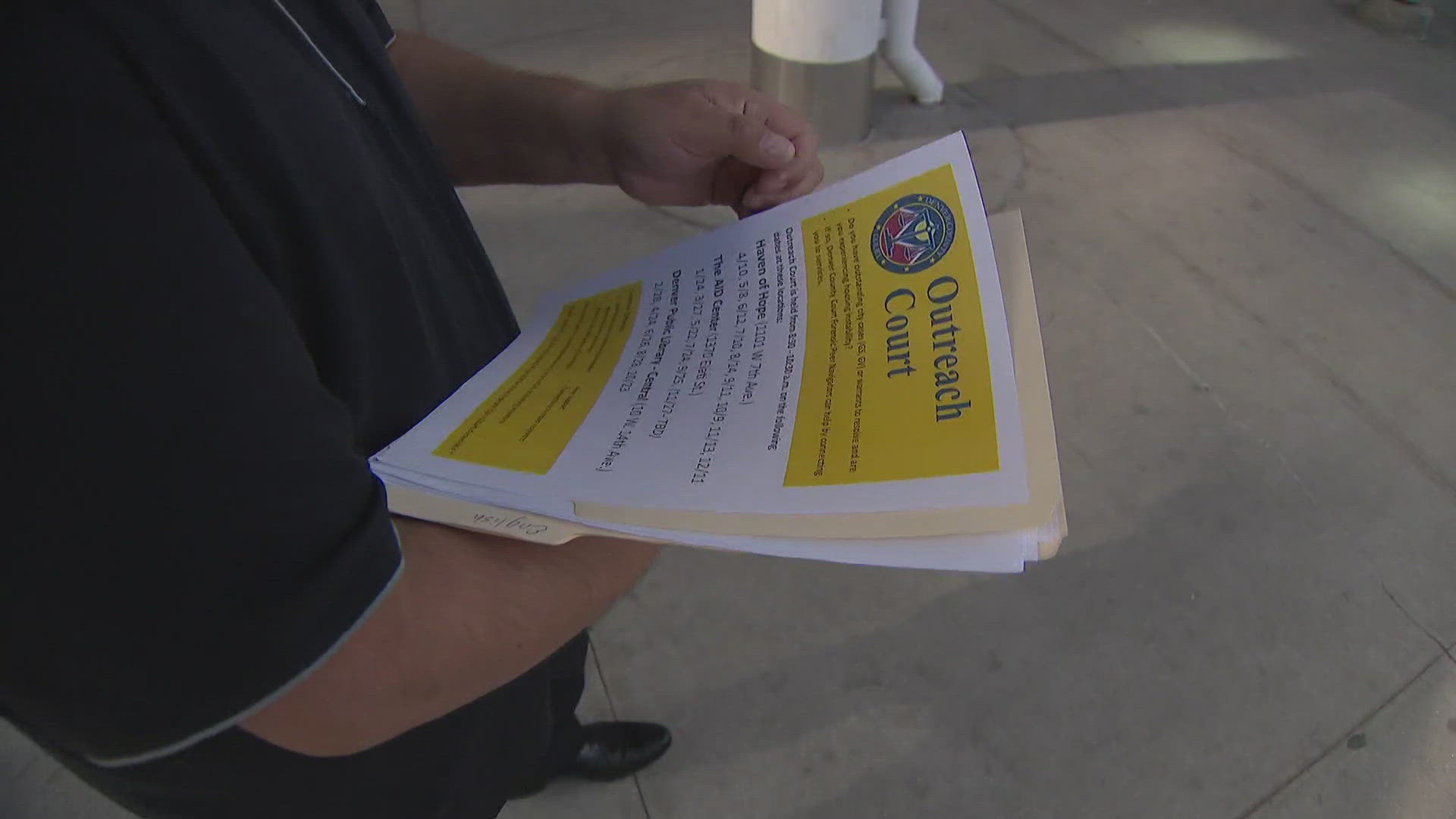DENVER, Colorado — Those who are unhoused often face additional barriers to making it to the courthouse. Many times, they don't have a physical address, so receiving mail related to their court date can be a challenge and people can end up with outstanding cases and warrants.
To make it more accessible, the Denver County Court has created a program called 'Outreach Court' for those who are unhoused. The Municipal Defender's Office and community service providers set up in public areas such as the A.I.D. Center of Denver County or the Denver Public Library.
"To me, it is really trying to accomplish two things. One is we are trying to get court to where the people need it. For lots and lots of people, getting to the courthouse on a certain day and a certain time, all of that can be very difficult. So, we want to bring it to where the folks need it," said Ari Krichiver, Deputy Public Defender director.
Krichiver says the goal of the program is to come up with ways to resolve the cases that will help people get out of the system. They also hope to connect people with resources.
The program is especially important for members of the unhoused community, who faces additional charges or citations largely due to their living situation.
"By and large, they are directly related to folks being unhoused. They are doing the things that most of us take for granted because we have a place to do them – sleep, using the bathroom, showering," Krichiver said. "All the things that we do inside of our homes, most of the folks that come here don’t have a place to do that."
Forensic Peer Navigators with their own lived experience help run the program and connect with the people who walk in the door. All Navigators have their own journey of recovery with mental health issues or substance abuse. Many of them have also gone through the criminal justice system themselves.
"It's designed specifically for those who are the more vulnerable population, folks who are dealing with housing insecurity, to remove the barriers that would otherwise keep them from coming to court," said Joseph Ellis, program administrator of Outreach Court and the Forensic Peer Navigator program.
Ellis is a veteran who has been in recovery for the past 11 years.
"First of all, it's part of my recovery to serve others," Ellis said. "I think a little bit of help goes a long way."
He and a team of navigators connect with the unhoused to notify them of the dates and locations.
"It’s one thing to try to lead somebody to help, but when you can lead somebody in the eye and say, 'I’ve been exactly where you are right now. I got help.' You are a living embodiment of that hope," Ellis said.
The program has been going on for years but then became virtual during COVID. Since then, Denver County Court has continued to expand the program back into an in-person model. Since its inception in 2018, the program has served more than 3,200 people, which equates to roughly 8,500 cases.
"I'd like to think we are helping save lives and helping save money at the same time," Ellis said.
Many of the unhoused people who use the program are often fearful going to a traditional courthouse will result in arrest or other consequences. This gives them an alternative in a different setting where they can still resolve their cases.
It also means they can go to court without having to abandon their items at an encampment or leave them outside of the courthouse, which would make them a target of theft.
"Yeah, I've been in the court system before - felonies, misdemeanors. This is the easiest I've ever seen it," said Marc Miller, who attended Outreach Court.
Like many others, his charges were related to being unhoused. His two outstanding cases were related to trespassing and public consumption. The cases he cleared up were unrelated to other charges in the past, including a case with the Department of Corrections.
"I fell ill over the winter so it’s difficult for me to walk a lot of days very far," Miller said, describing the challenges of getting to the courthouse. "I got a lot of stuff taken care of here today and this program needs to continue for people who want to come in and use it."
SUGGESTED VIDEOS: Next with Kyle Clark

